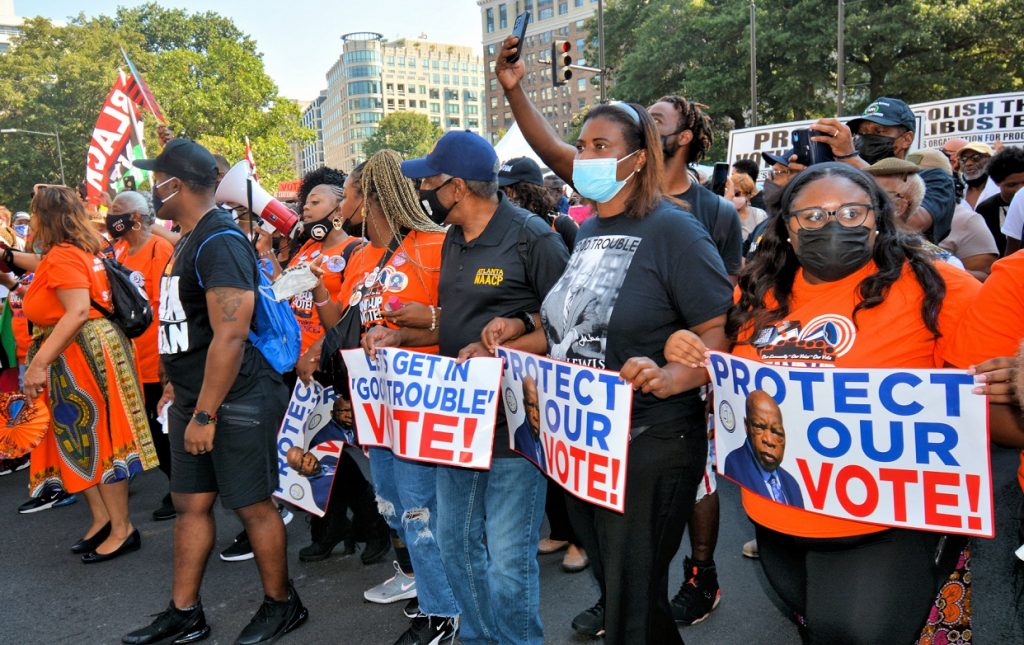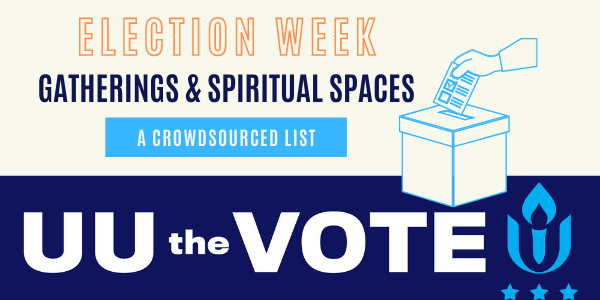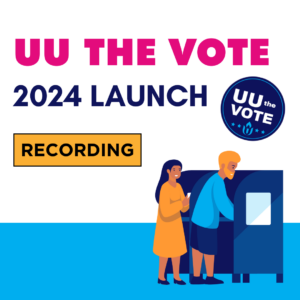By Jeff Milchen
Updated April 14, 2023
In early 2022, the Freedom to Vote Act (FTVA) and the John Lewis Voting Rights Act were both blocked by filibuster in the Senate when Senators Joe Manchin and Kyrsten Sinema joined Republicans to prevent the bills from being voted on. A third key bill, Washington, D.C. Admission Act, passed the House, but was not acted upon in Senate.
For the past year, congressional action to advance, or even sustain existing levels of voting rights protections, have seen little debate, even as authoritarian attacks on voting rights have proliferated. In just the first two months of 2023, at least 27 election interference bills were initiated across 10 states, along with dozens of pro-democracy bills.
In coalition with more than 250 pro-democracy allies via the Declaration for American Democracy, we seek to renew support for proactive federal protection of voting rights like the Freedom to Vote Act. The FTVA is a critical legislative package that would create national standards to protect our freedom to vote, help reduce the electoral political power of corporations and extreme wealth, combat partisan election subversion, and guarantee that congressional districts are drawn to give fair representation for all.
The Freedom to Vote Act overwhelmingly passed the House of Representatives in both 2019 and 2021, but with several supporters losing seats or retiring in 2022, we need more democracy advocates from across the political spectrum to speak out and ensure Congress knows voting rights remain a top priority for people nationwide. We anticipate the reintroduction of the FTVA by early May. While the FTVA may be modified prior to introduction, the current draft is reported to closely match previous versions, including key provisions to:
- Stop partisan gerrymandering by creating objective standards for redistricting
- Enable all eligible voters to register at the polls right up to Election Day
- Establish 15 days of early voting, including at least two weekends
- Bar partisan purges of voter rolls by creating fair rules
- Automatic restoration of voting rights for people returning from prison
- Protect and expand access to voting by mail and drop boxes
- Enact disclosure requirements to reduce the corrupt power of untraced money
(encompasses provisions previously proposed in the “DISCLOSE Act.”) - Mandate non-partisan election administration
- Ensure use of paper ballots that can be verified by voters and accurately re-counted
Other elements would ensure changes to local or state election law are reviewed by the U.S. Department of Justice before implementation. It would restore many rights that the U.S. Supreme Court effectively stripped away in its 2013 Shelby v Holder ruling, which gutted the Voting Rights Act of 1965. It is equally important that Congress pass the John Lewis Act, which would restore the full protections of the VRA, including:
- Enact protections for Indigenous voters previously proposed in the Native American Voting Rights Act
- Protect election workers by establishing criminal penalties for people who threaten, harass or attack election workers or their workplace. Some elements were previously part of the Election Worker and Polling Place Protection Act.
- Increase transparency by requiring advance public notice for voting changes
- Create a new coverage formula that hinges on a finding of repeated voting rights violations in the preceding 25 years, measured on a rolling basis
- Block voter suppression tactics historically used to discriminate against voters of color






